Quincy Illinois Office (217) 222-2432
Hannibal Missouri Office (573) 221-2150
SICK AND BROKE: BANKRUPTCY ADVICE FOR SOCIAL SECURITY DISABILITY CLIENTS
Applying for Social Security Disability benefits can mean facing two or more years of loss of income. How should someone dealwith this financial crisis? Bankruptcy can give some relief, but the timing is important and depends on a number of factors:
1. Is the Claimant single or married?
2. Does the Claimant have assets at risk?
3. Does the Claimant have medical coverage of some kind?
If a Claimant is single and has no assets, then she is the proverbial turnip out of which no one can get any blood! There is no immediate need to file a bankruptcy, and if Claimant has no insurance and could need more testing, surgery or treatment, then she should not file bankruptcy during the two years plus it takes to get on benefits. A person can file a Chapter 7 bankruptcy only once every eight years, and you want to be able to include all foreseeable medical bills.
Social Security benefits cannot be garnished by the typical creditor. A government debt for taxes, overpayment of federal benefits or student loans can be the exception to the rule. The benefits once received, even a large back pay amount, can be protected in a bankruptcy, as long as those funds are not co-mingled with other money. Keep them in a separate bank account, and they will be exempt from attachment.
Claimants should also be aware of the Preference rule in bankruptcy. Often Claimants rely on the kindness of family and friends to support them during the long wait for disability benefits. There is the natural inclination to pay those people back immediately with past due benefits when received in a lump sum. However, if bankruptcy is going to be filed to get rid of other debt like credit cards, medical bills, payday loans, etc, DO NOT pay back family prior to the bankruptcy. That would have to be disclosed for one year from the time of payment, and they would be at risk of having to pay that money back! The better course of action is to list the family and friends as creditors, and after the bankruptcy is final, and the disability benefits are exempted, the Claimant can pay back whomever they desire with no problem.
If a Claimant has assets, then they might need to be liquidated merely to survive the long wait for benefits. Sales of assets have to be disclosed for the previous two years to a bankruptcy filing. DO NOT merely transfer assets to family or friends to try and “protect” them. Most states (including Illinois and Missouri) have a Uniform Fraudulent Conveyance Act that can recover such transfers for up to four years. Sales for fair market value are perfectly acceptable.
If a Claimant is married, and that spouse is working, their wages could be at risk if they are sued for joint debts. Most states view medical bills as a joint debt, regardless of who received the services. Thus they should sit down with an attorney and go over their monthly budget to see if a Ch 7 or Ch 13 bankruptcy would be the most appropriate under the circumstances.
The post SICK AND BROKE: BANKRUPTCY ADVICE FOR SOCIAL SECURITY DISABILITY CLIENTS appeared first on Dempsey, Dempsey & Hilts P.C..
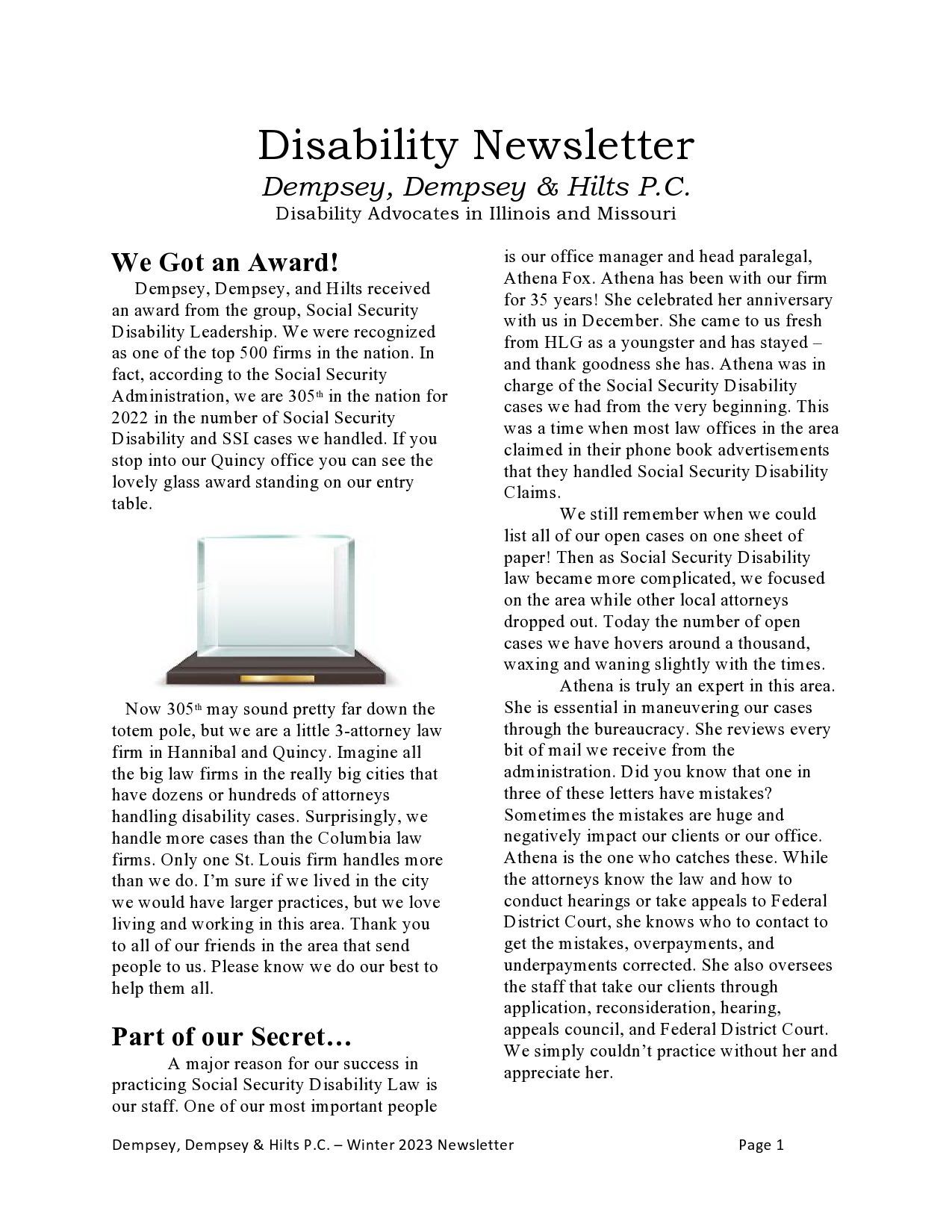



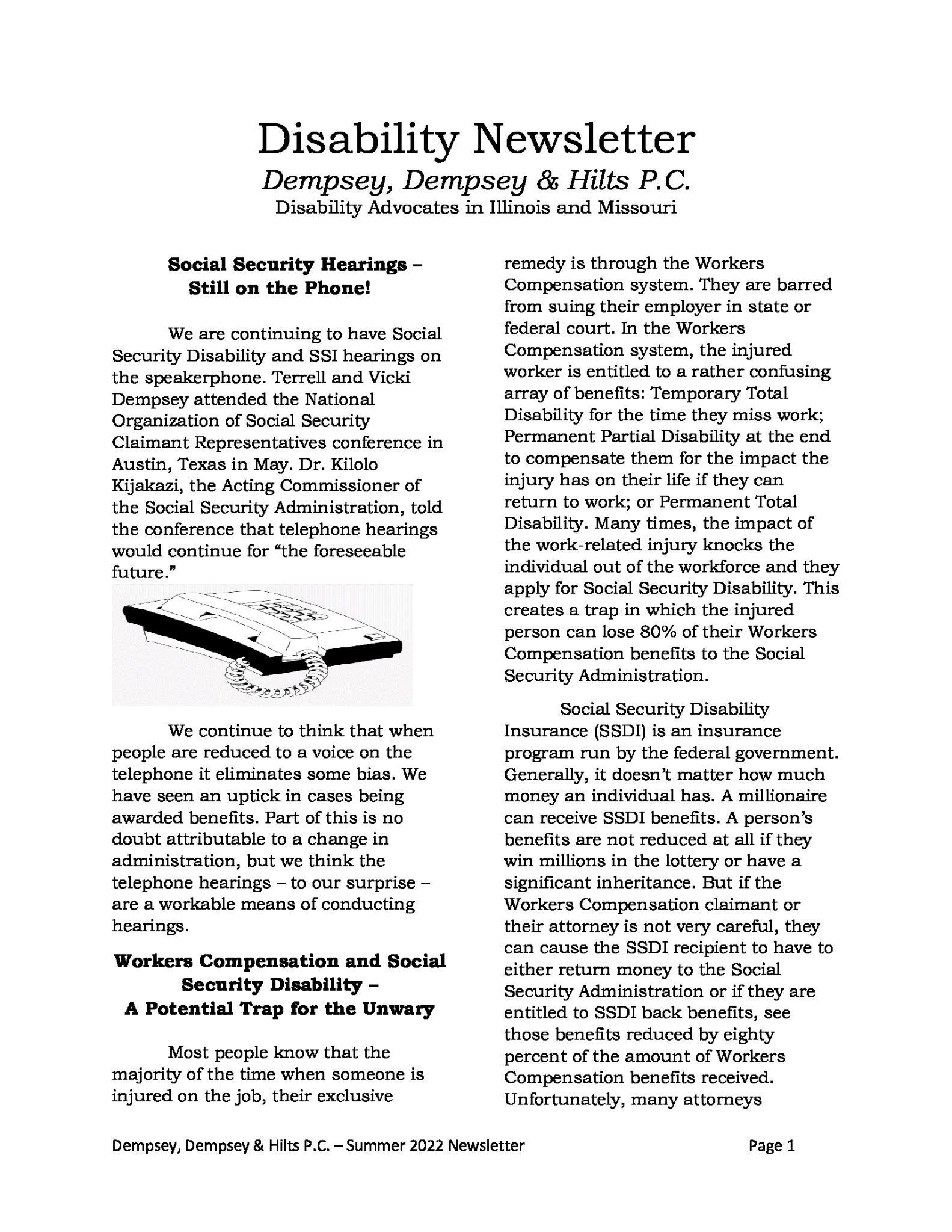
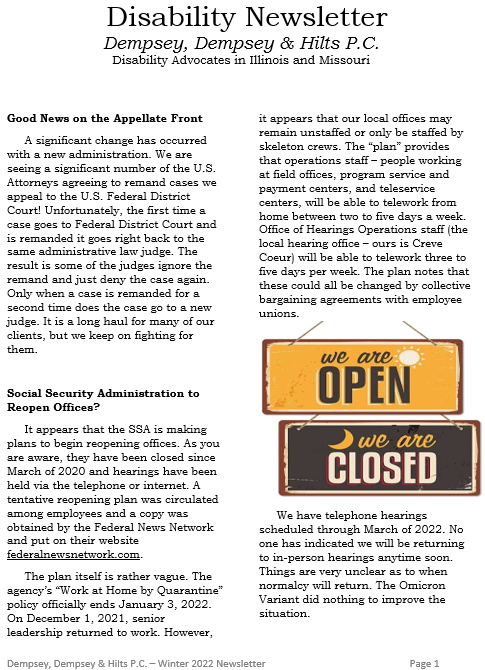
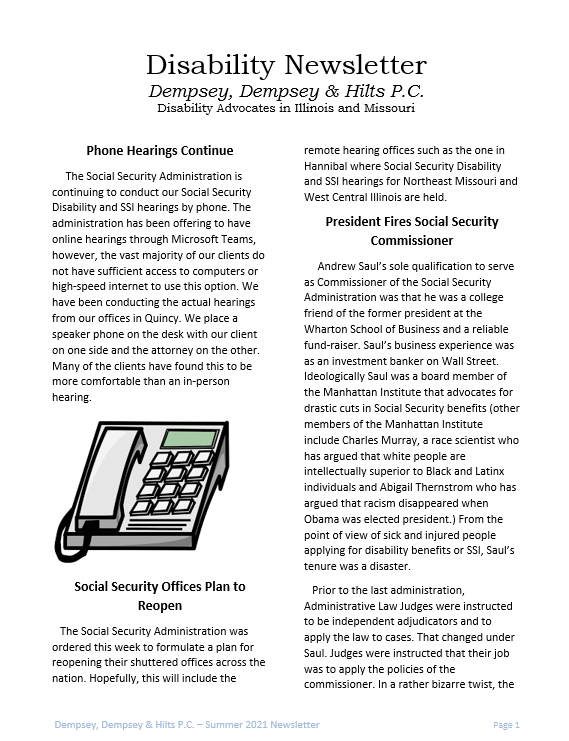
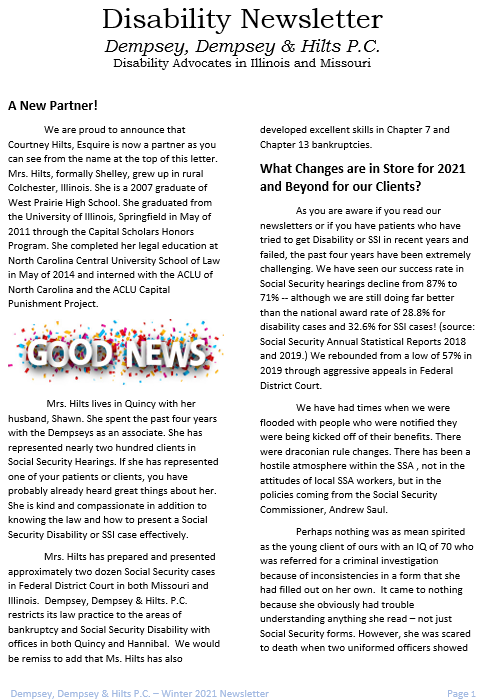
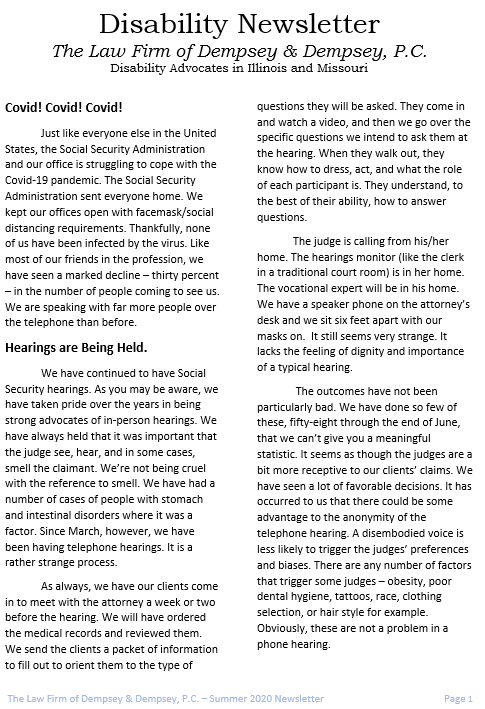
Office: Quincy Illinois Office
Phone: (217) 222-2432
Address: 236 North 6th, P.O. Box 331
Quincy, Illinois 62306
- Mon - Thu
- -
- Friday
- -
- Sat - Sun
- Closed